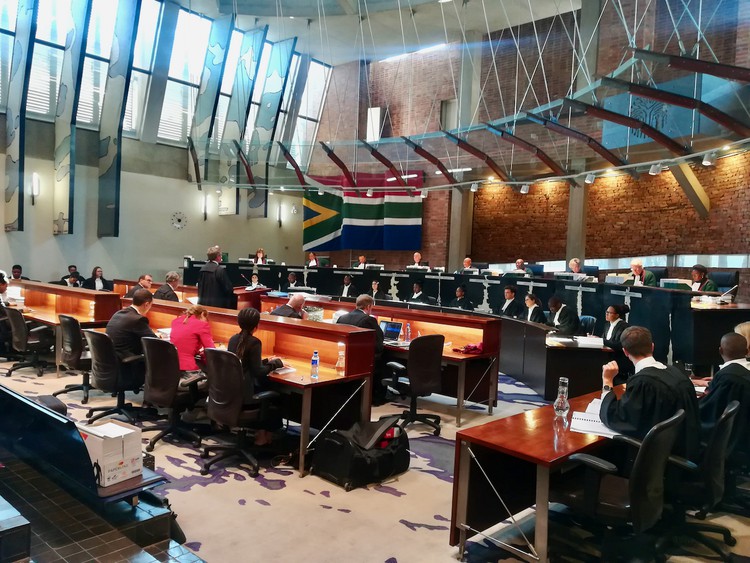Traffic information employees unpaid for eight months
Department of Transport’s Road Traffic Management Corporation in legal wrangle with private company Tasima over insourcing employees
About 66 former employees of Tasima (Pty) Ltd – a company contracted by the Department of Transport’s Road Traffic Management Corporation (RTMC) to build a traffic information system – have not been paid salaries since December 2018.
The electronic National Traffic Information System (eNaTIS) built by Tasima is the Department of Transport’s official register for vehicles, driving licenses, contravention and accident data.
Tasima was contracted by RTMC in 2001 to build eNaTIS. It was initially a five-year contract, but according to RTMC, Tasima “clung onto the contract” and made about R2.5 billion when the contract was supposed to cost R335 million, according to court papers.
In 2016, the Constitutional Court ordered Tasima to hand over eNaTIS and related services to RTMC.
Tasima and RTMC are in a legal dispute about whether RTMC was obligated to insource Tasima’s employees after eNaTIS was handed over to the Department.
The former Tasima employees have not been fired or retrenched by RTMC or Tasima, but they have not been paid by either in the last eight months.
“The consequence … is that while the RTMC exhausts its appeal processes, the employees and their dependants (including children and the elderly) will suffer (and are suffering) substantial and irreversible harm,” read Tasima’s court papers.
Tasima filed an urgent application in the Constitutional Court asking it to order RTMC to pay the employees’ salaries while Tasima and RTMC litigate further on insourcing the employees.
Employees left unpaid
“We are just waiting for this nightmare to be over,” said former employee of Tasima, Maureen Senamela. The mother of two said she is currently relying on “handouts to survive”.
“We just want closure. We want to know whether we will still have jobs at the end of this. Most of us are looking for other jobs but it’s difficult because we are technically still employed,” said Cecelia Mahlonoko, a former employee of Tasima.
“There was a time a few months ago where I couldn’t even afford to buy sanitary towels for my 14-year-old daughter and that really broke me,” she told GroundUp.
Kenneth Skweit, another former Tasima employee, said: “Some of [us] including myself have been evicted from our homes due to non-payment, others [have had] vehicles repossessed, and creditors have taken legal action.”
He said other former employees also had chronic medical conditions that needed treatment, but they could no longer afford it.
Skweit said the employees were not able to collect their UIF because they still appear as employed on the system.
Mired in court battles
After the Constitutional Court in 2016 ordered Tasima to hand over eNaTIS, Tasima said eNaTIS was its only business, and left Tasima employees without work and salaries.
Tasima approached the labour court to get RTMC to absorb its employees, using section 197 of the Labour Relations Act.
Section 197 states that an automatic transfer of employment contracts from one employer to another takes place when the whole or part of any business, trade, undertaking or service is transferred as a going concern. A going concern is tested by comparing the business before and after the transfer.
Tasima and RTMC agreed that eNaTIS services stayed the same after the transfer.
The labour court found that section 197 applied and ordered RTMC to insource the employees. If RTMC intended to appeal the order, the court said it should pay the employees’ monthly salaries while the parties litigated further.
RTMC appealed the order in the Labour Appeals Court (LAC). It continued to pay the employees’ salaries from May 2017.
In December 2018, the LAC confirmed that section 197 of the LRA applied but it said no rights flowed from that declaration. It dismissed the interim payment relief that the labour court granted the employees.
Following LAC’s order, RTMC stopped paying the employees.
Constitutional Court
Tasima approached the Constitutional Court on an urgent application to reinstate the interim relief that the labour court initially granted the employees.
The matter was heard on Tuesday.
Tasima argued that LAC’s order defeated the purpose of section 197, which said there should be an automatic transfer of contracts between employers.
Tasima said eNaTIS was its only revenue and since it was transferred to RTMC, the company was not making money to pay employee salaries.
But RTMC said the validity of section 197 was still in dispute so it could not be responsible for paying employees’ salaries.
“Tasima, of course, says that it cannot pay [employees’ salaries] but … the RTMC has on four separate occasions invited Tasima to put up … its bank statements to prove that it does not have the money to pay salaries. Tasima steadfastly refuses to do that. Instead, it pleads poverty … all the while litigating with an expensive entourage of lawyers,” read RTMC’s court papers. “Tasima has plenty of money, but it chooses to spend it litigating against the government rather than paying its employees’ salaries.”
Support independent journalism
Donate using Payfast

Next: Former mine workers march to Parliament on Marikana day
Previous: Cape Town municipality knew Site B could be sold for more but chose to sell quickly instead
© 2019 GroundUp.
This article is licensed under a Creative Commons Attribution-NoDerivatives 4.0 International License.
You may republish this article, so long as you credit the authors and GroundUp, and do not change the text. Please include a link back to the original article.

